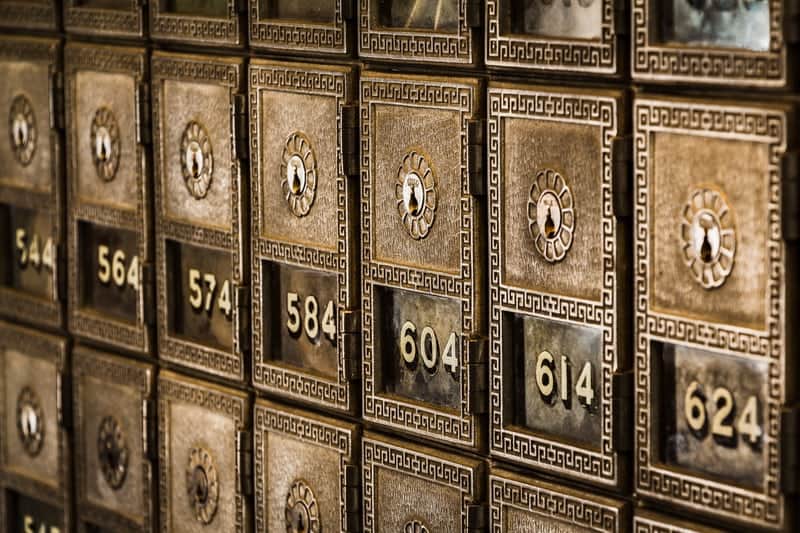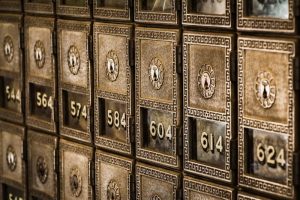
Not everything belongs in a safe deposit box.
You have a safe deposit box at your local bank.
You have decided to keep all of your important documents, heirlooms, and sums of cash inside the bank.
Although this may seem the safe choice, it is not.
According to a recent Kiplinger’s article titled “9 Things You'll Regret Keeping in a Safe Deposit Box,” you may need more "ready access" to certain items than a safe deposit box allows.

Accessibility is one downside to using a safe deposit box.
Why?
Banks are not open on holidays and may be closed on weekends.
During this pandemic, many banks have closed their doors to non-employees or have instituted limited hours of operation.
For these reasons, you may be unable to access items within a safe deposit box when you need them.
What items should you consider storing elsewhere?
Cash.
Storing cash for emergencies in your safe deposit box is counterproductive.
It may be inaccessible during an emergency.
Also, cash will lose value due to inflation.
Instead, you should keep your cash in a checking account, savings account, or CD.
FDIC insurance covers up to $250,000 per depositor within insured banks, but only if it is in approved account.
Your Passport.
Although many of your trips are planned in advance, you cannot guarantee this will always be the case.
You may need to take an trip on short notice for a family emergency.
If your bank is closed, you may be literally grounded.
The Original Copy of Your Will.
A copy of your last will and testament is suitable to keep in your safe deposit box.
Do not use the bank to store your original.
Why?
Your executor will need to have documentation from the probate court to serve in this role after you die.
If the original last will is in the safe disposition box, your executor will not be able to access the document to prove his or her authority to manage your affairs.
Yikes!
This could delay the settling or your estate and cause headaches for your loved ones.
Letters of Instruction.
If your write a letter of instruction describing your funeral arrangements, you should leave them with a loved one.
If they are at the bank, then your loved ones will not know your wishes until after you are buried or cremated.
General Durable Power of Attorney (POA).
Much like the original last will, a Power of Attorney stored at your bank complicates your affairs.
The power of attorney designates an agent to manage your finances on your behalf should you become incapacitated.
Without proof of this authority, as outlined in the Power of Attorney, your agent will be unable to access the safe deposit box where this document is stored.
Advance Directives.
Your advance health care directive allows you to designate an agent to make medical decisions on your behalf should you become incapacitated.
You can also outline the types of treatment you wish to receive (or not receive) for end-of-life care.
Without these documents readily accessible, your loved ones will not know your wishes and will be unable to establish their authority with the physicians.
Uninsured Jewelry and Collectibles.
Storing collectibles and heirlooms in a safe disposition box is a wise choice for many.
If you do this, you must insure them properly yourself.
Why?
The FDIC does not insure items in your safe deposit box, unless this is specifically outlined in your banking agreement.
Any Illegal or Dangerous Items.
Banks have guidelines as to what items are specifically banned from storage in a safe deposit box.
This list often includes firearms, hazardous materials, or illegal drugs.
Where should you keep valuables, documents, and items if you should not store them in your safe deposit box?
Purchasing a fireproof safe for your home is a wise and practical alternative choice.
This can keep these items protected and accessible.
Reference: Kiplinger (June 1, 2020) “9 Things You'll Regret Keeping in a Safe Deposit Box”
REMEMBER: “The choice of a lawyer is an important decision and should not be based solely upon advertisements.”
This statement is required by rule of the Supreme Court of Missouri.
